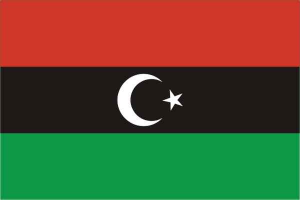Language/Libyan-arabic/Vocabulary/Family
Hi Libyan Arabic learners! 😊
In this lesson, we will learn about the family vocabulary in Libyan Arabic. Family is an essential aspect of Arabic culture and society, and it is an important topic to cover when learning Libyan Arabic. You will learn how to say family members' names and understand how they are used in conversation. The vocabulary will be organized in tables, and cultural facts and analogies will be provided to facilitate comprehension. Let's get started and learn about the Libyan Arabic family lexicon.
Finish this lesson and explore these related pages: Say Hello and Greetings in Libyan Arabic, Feelings and Emotions, Geography & Health.
Immediate Family[edit | edit source]
Immediate family members are parents, siblings, and children. In Libyan Arabic, we have specific names for these family members. Here are some of the most common immediate family vocabulary words used in Libya:
| Libyan Arabic | Pronunciation | English |
|---|---|---|
| بابا | bābā | father |
| ماما | māmā | mother |
| ولد | walad | son |
| بنت | bint | daughter |
| أخ | akh | brother |
| أخت | akht | sister |
| أب | ab | dad |
| أم | umm | mom |
Here's an example dialogue:
- Person 1: شنو اسم الأخت دي؟ (shnoo ism al-akht di?) (What's this sister's name?)
- Person 2: أسمها زينب. (asmha zaynb) (Her name is Zainab.)
Extended Family[edit | edit source]
Libyan Arabic recognizes specific names for extended family members like grandparents, uncles, aunts, and cousins. Here are some of the most common extended family vocabulary words used in Libya:
| Libyan Arabic | Pronunciation | English |
|---|---|---|
| جد | jadd | grandfather |
| جدة | jaddah | grandmother |
| عم | 'am | uncle |
| خال | khal | uncle |
| عمة | 'ammah | aunt |
| خالة | khalah | aunt |
| ابن العم | ibn el 'am | cousin (male) |
| بنت العم | bint el 'am | cousin (female) |
Here's an example dialogue:
- Person 1: جدك من وين؟ (jaddak men ween?) (Where is your grandfather from?)
- Person 2: جدّي من بنغازي. (jaddi men benghazi) (My grandfather is from Benghazi.)
Marriage and In-laws[edit | edit source]
In Libyan Arabic, we have specific vocabulary to refer to family members by marriage. Here are some of the most common vocabulary words to talk about in-laws:
| Libyan Arabic | Pronunciation | English |
|---|---|---|
| زوج | zawj | husband |
| زوجة | zawja | wife |
| حما | ḥamā | father-in-law |
| حماتي | ḥamaty | mother-in-law |
| صهر | ṣihr | brother-in-law (husband of sister) |
| صهرة | ṣihrat | sister-in-law (wife of brother) |
Here's an example dialogue:
- Person 1: شفيك مع زوجتك؟ (shfeek ma zawjtek?) (How are you and your wife?)
- Person 2: كلّو تمام الحمد لله. (klū tmām alḥamdullah) (Everything is good, thanks be to God.)
Children and Their Spouses[edit | edit source]
Children's spouses are common figures in Libyan society, and specific terms are used to address them. Here are the most common words used to talk about children's spouses:
| Libyan Arabic | Pronunciation | English |
|---|---|---|
| إبن الحلال | ibn el ḥalal | son-in-law |
| كنة الحلال | kint el ḥalal | daughter-in-law |
| حفيد | ḥafīd | grandchild |
Here's an example dialogue:
- Person 1: شفي الحفيد؟ (shfeel ḥafīd?) (How is the grandchild?)
- Person 2: الحمد لله بخير. (elḥmadullah bkhīr) (Thank God, he is good.)
Cultural Facts[edit | edit source]
In Libyan culture, family is an essential component of society. It is often considered the center of social, economic, and political life. Families typically have strong bonds that are enhanced by religion, traditions, and social norms. Respect for the elderly is especially critical in Libyan culture, and family members are expected to care for their parents and grandparents. It is not uncommon for several generations to live together in the same house, as Libyan culture values extended family relationships.
Conclusion[edit | edit source]
In this lesson, we covered the family vocabulary in Libyan Arabic, from immediate to extended family members, and children's spouses. We also learned about Libyan culture, emphasizing the role of the family in society. To improve your Libyan Arabic Vocabulary, you can also use the Polyglot Club website. Find native speakers and ask them any questions! Don't forget to practice, and feel free to update this wiki page with any new vocabulary you learn. 😎
➡ If you have any questions, please ask them in the comments section below.
➡ Feel free to edit this wiki page if you think it can be improved. 😎
Sources[edit | edit source]
Well done on mastering this lesson! Don't miss these related pages to expand your knowledge: How to Say Goodbye in Libyan Arabic, Fruits, Colors & Count to 10.

